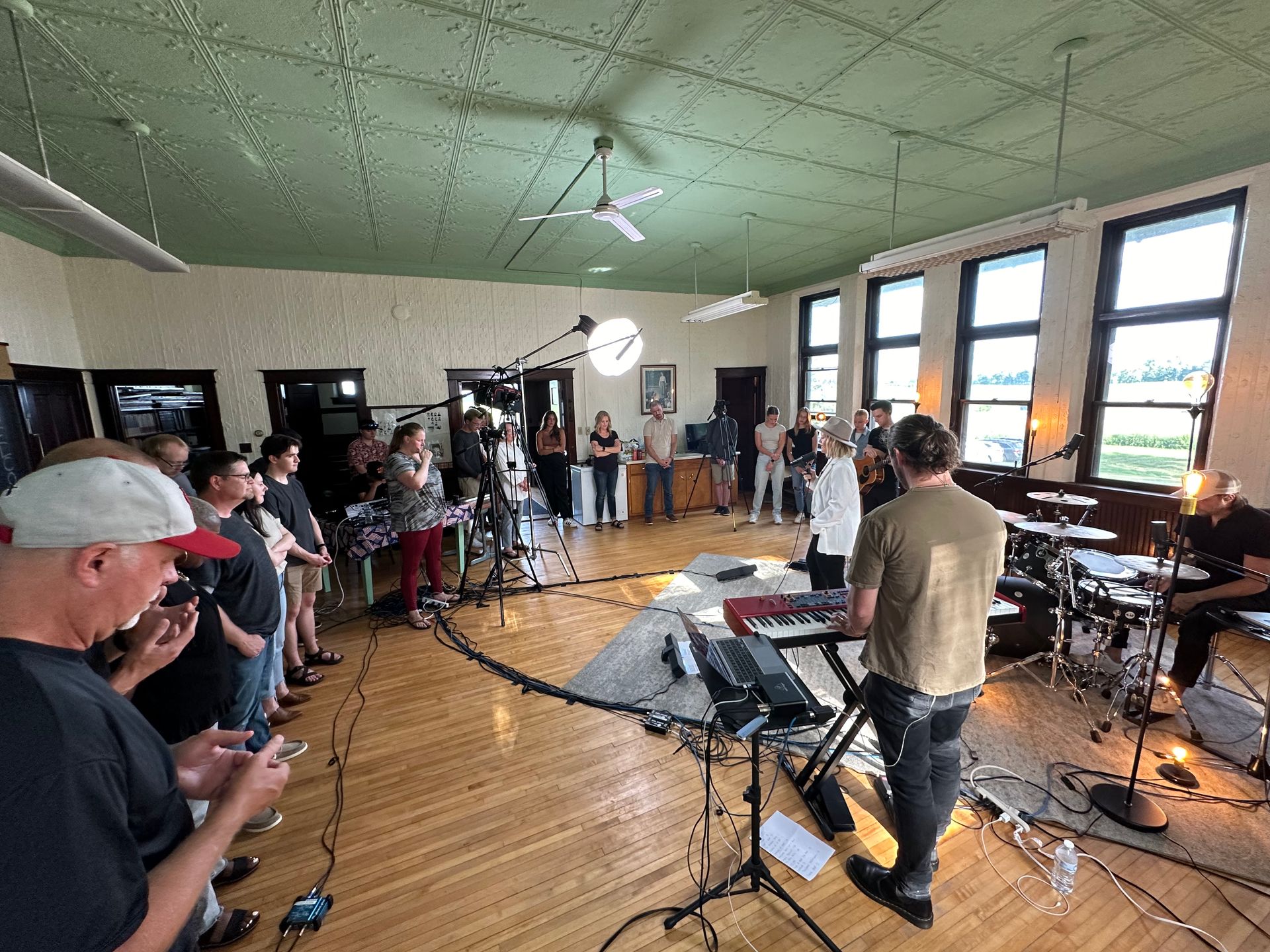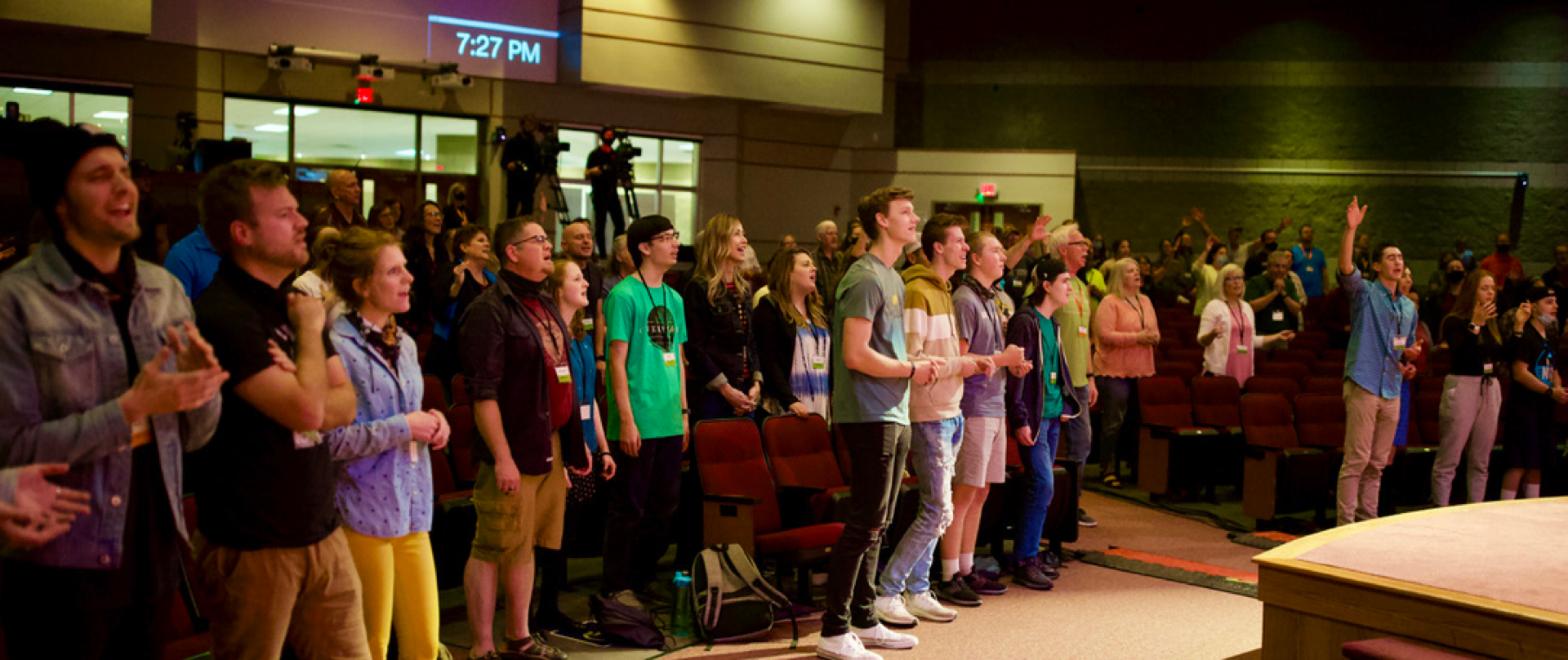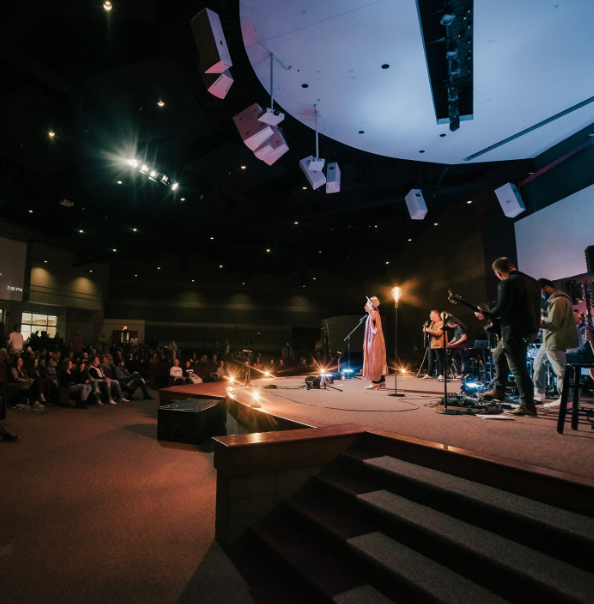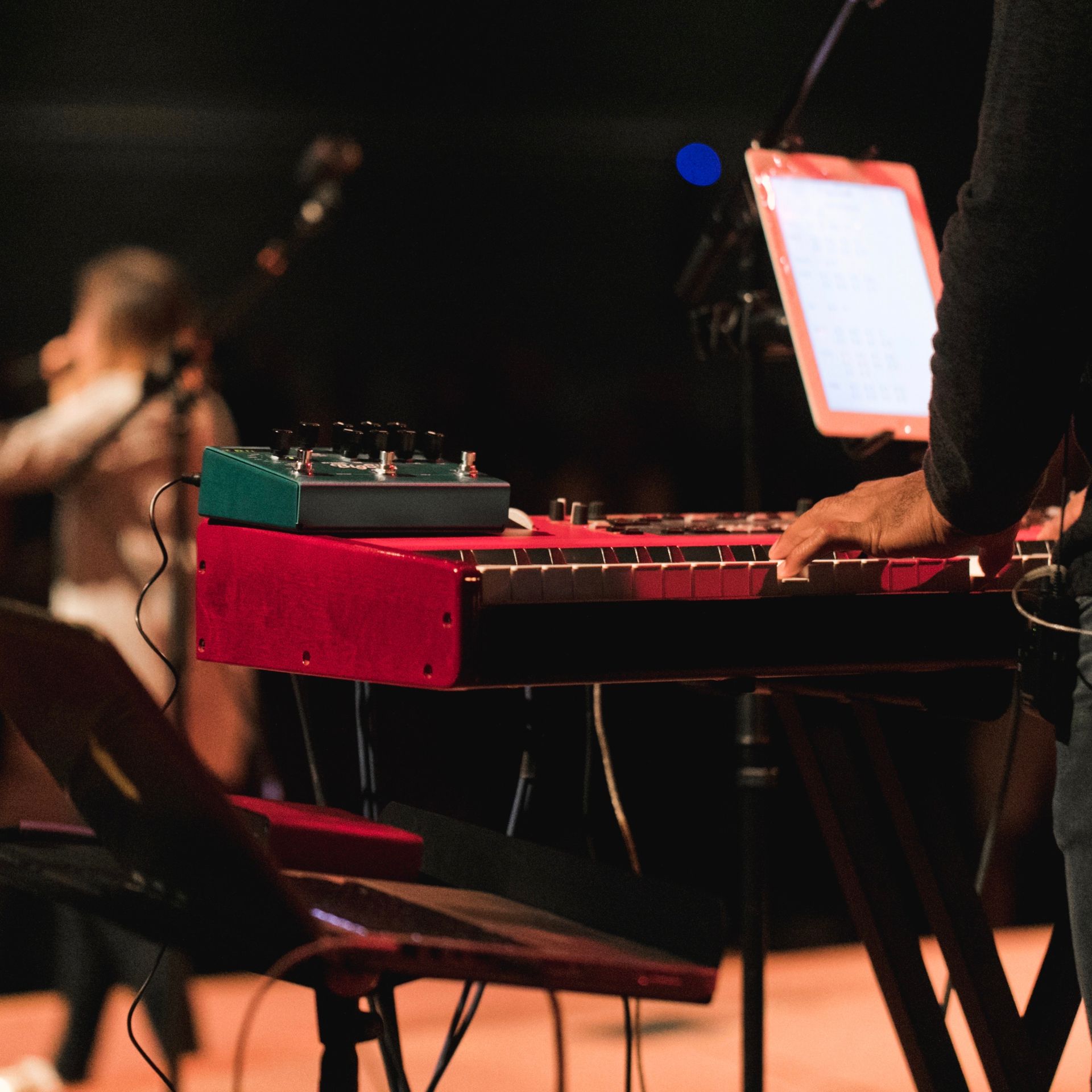
Episode 117: 4 Tips to Having Confidence on Stage
Welcome to the Overflow Worship Blog! Stage confidence is essential for worship leaders, but it doesn't come naturally to everyone. Today, Andrea Olson shares her top tips to help you build confidence on stage, ensuring you can lead your congregation with authenticity and joy. Let’s dive into these practical tips and learn how to thrive on stage!
Unleash Your Stage Confidence with Andrea Olson
Stage fright is something many worship leaders experience, and it can significantly impact your stage presence. Whether you're afraid of messing up, appearing silly, or just feeling those nerves creep in, it’s important to address these feelings head-on. Stage fright can make even the most experienced leaders feel like beginners, but it doesn't have to hold you back.
Be Yourself
The Pressure to Conform
In today's worship culture, it's easy to feel like you need to mimic the big names and their energetic styles. However, authenticity is key. You don’t need to morph into someone you're not. Embrace your unique style and personality.
"Don’t feel pressured to jump up and down if that’s not you," Andrea advises. "Be authentic. Your congregation will appreciate the genuine you."
Authenticity means being true to who you are and how you express your faith. It's about letting your natural personality and style come through in your worship leading. This doesn’t mean you can't be inspired by others, but it does mean you should avoid trying to imitate someone else's style at the expense of your own authenticity. When you lead with authenticity, your congregation connects more deeply with the worship experience. They see a leader who is real, and that genuineness invites them to be real in their worship as well.
Understand the Why Behind the What
The Importance of Understanding Purpose
Understanding the Why Behind Your What
Let’s start with the basics: understanding the "why" behind your "what." Worship leading is what you do, not who you are. It’s crucial to connect deeply with the purpose behind your role. This is the foundation of your confidence.
Biblical Insight:
In John 4:23-24, Jesus talks about true worshippers worshipping the Father in spirit and in truth. Worship isn’t just about singing songs; it’s about connecting with the heart of God. This understanding sets the stage for leading worship with confidence, knowing that you’re guiding others into a profound spiritual connection.
Practical Tip:
Take some time to reflect on why you lead worship. Spend moments in prayer, asking God to reveal the deeper purpose behind your ministry. This clarity will anchor you and boost your confidence on stage. Write down your thoughts and revisit them whenever you need a reminder of why you do what you do.
Imagine this: you’re preparing for Sunday’s service, and you feel a bit overwhelmed. Pause for a moment, grab a journal, and write down your “why.” It could be as simple as, “I lead worship because I want others to experience God’s love.” Keep this note where you can see it regularly. It’s your anchor.
Hosting as a Worship Leader
Now, let’s reframe your role as a worship leader: think of yourself as a host. Imagine you’re hosting guests at your home. You wouldn’t just open the door and walk away, leaving them to fend for themselves. Instead, you guide them, make them feel welcome, and ensure they know where everything is.
Stewarding the Atmosphere:
As a worship leader, you’re hosting the congregation, guiding them through the worship experience. This mindset shifts the focus from your performance to how well you can lead others into worship. It’s about creating a welcoming environment where everyone feels included and engaged.
Practical Tip:
Before stepping on stage, remind yourself that you’re a host. Your goal is to make everyone feel welcome and guide them into God’s presence. This perspective reduces the pressure and helps you focus on the congregation’s experience. Think about how you can set the stage for worship, not just through music, but through your words and actions.
Picture this: it’s Sunday morning, and the church is filling up. As you prepare to step on stage, take a deep breath and think of yourself as a host welcoming guests to a special event. Your job is to make them feel at home, guide them through the worship experience, and help them connect with God. This mindset takes the pressure off you and shifts your focus to serving others.
Practical Tips for Gaining Confidence
Here are some key tips for worship leaders struggling with confidence on stage. These practical steps will help you feel more prepared and at ease.
Preparation and Practice:
Confidence comes from being well-prepared. Write down your prayers, scriptures, and transitions. Having these notes handy ensures you’re ready and reduces the anxiety of forgetting what to say. Practice your transitions and any spoken parts ahead of time.
Imagine you’re an actor preparing for a big role. You wouldn’t go on stage without rehearsing, right? The same goes for worship leading. Spend time during the week practicing your transitions, prayers, and scriptures. By the time Sunday rolls around, you’ll feel prepared and confident.
Using Notes:
It’s perfectly okay to use notes during worship. Whether you’re reading a scripture or praying, notes can help you stay on track and deliver your message with confidence. Over time, you’ll find that you might not need them as much, but for now, they are a valuable tool.
Think of notes as your safety net. They’re there to support you, so you don’t have to worry about forgetting important points. Over time, as you gain more experience, you’ll find that you rely on them less. But for now, embrace them as a helpful tool.
Embrace Spontaneity:
While preparation is crucial, spontaneity also plays a role in worship leading. As you grow more confident, you’ll find it easier to pray or speak spontaneously. This skill develops over time with practice and experience, so don’t be afraid to step out and try new things.
Imagine a jazz musician improvising a solo. They’ve practiced their scales and know their instrument well, but they also allow themselves to be inspired in the moment. Worship leading can be similar. As you become more comfortable, you’ll find moments where you can be spontaneous and let the Spirit guide you.
Encouragement and Resources
I understand the challenges worship leaders face, and I want to offer you some words of encouragement. It’s okay to feel nervous. Confidence grows with practice and trust in God’s guidance.
Push Yourself:
Don’t shy away from opportunities to lead, even if you feel nervous. Each experience helps build your confidence. Volunteer to lead different parts of the service or take on new challenges to expand your comfort zone.
Think of it like training for a marathon. Each time you push yourself a little further, you build endurance and strength. The same goes for worship leading. By stepping out of your comfort zone, you’ll grow more confident and capable.
Trust in God’s Grace:
Remember that God’s grace covers you. Even if you make a mistake, God’s presence and power can still move through your worship. He sees your heart and your efforts, and He will use them for His glory.
Imagine you’re a child learning to ride a bike. There will be wobbles and falls, but your parent is there, encouraging you and helping you get back up. God is like that loving parent, always there to support you and guide you.
Resources for Growth:
I mention the Overflow Worship Leader Startup Toolkit, a comprehensive course designed to help worship leaders with the foundational aspects of their ministry. It’s packed with practical advice and encouragement, making it an invaluable resource for new and newly positioned worship leaders.
Consider this toolkit as your guidebook for worship leading. It’s filled with tips, strategies, and encouragement to help you navigate the challenges and grow in your role. Take advantage of this resource to build a strong foundation.
Free Setlist Checklist:
To help worship leaders streamline their preparation process, I offer a free setlist checklist. This tool helps ensure that nothing falls through the cracks and that you’re well-prepared for each service. It’s a game-changer for those busy weeks when you need a little extra help staying organized.
Think of the setlist checklist as your roadmap for the week. It helps you stay organized and ensures that you’re covering all the bases. By following the checklist, you’ll feel more confident and ready to lead each service.
Conclusion: Embrace Your Role with Confidence
Gaining confidence as a worship leader is a journey that involves understanding your purpose, preparing thoroughly, and trusting in God’s guidance. By viewing your role through the lens of hosting, you can shift the focus from performance to leading others into worship. Remember, it’s okay to use notes and to feel nervous. With practice and trust in God, your confidence will grow.
I hope you found this episode of the Overflow Worship Podcast as inspiring and enriching as I did. To stay updated with the latest episodes and information, subscribe to our podcast.
Blessings,
Andrea Olson










